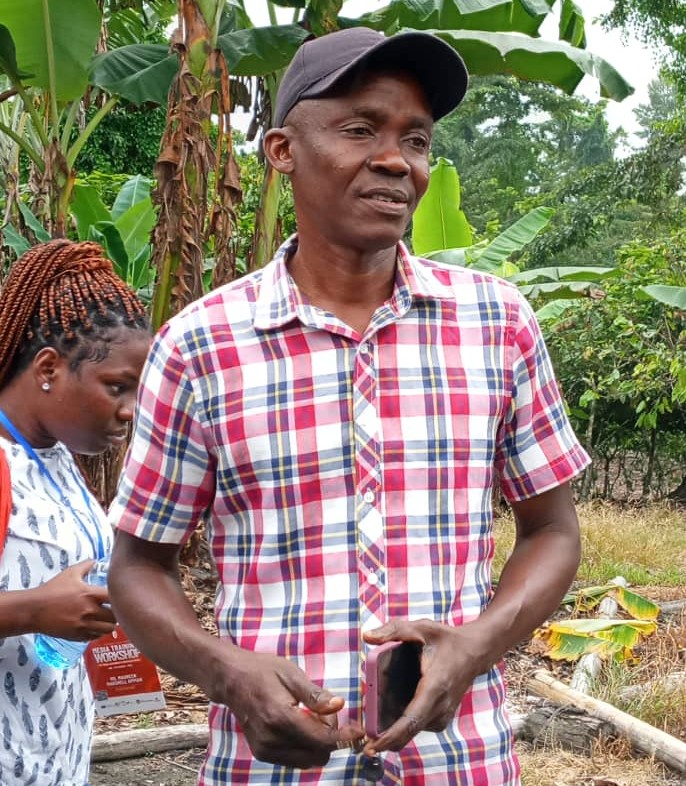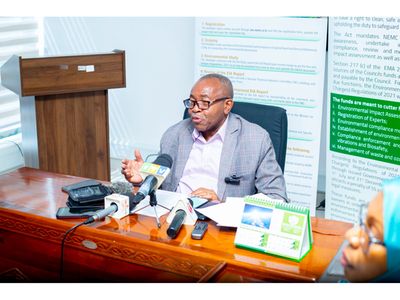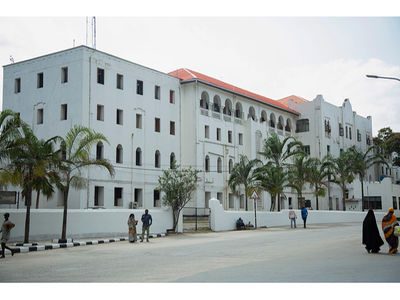
“…we started cultural practices during February, which began with weeding, then followed up with massive pruning where we want good ventilation in the farm,” said Samuel Torbi, a cocoa farmer in the Assin Fosu district. “When there is mistletoe on the cocoa, we use our labour to cut and bury it somewhere so it does not affect the crops.”
That is how Samuel Torbi incorporates cultural practices taught by COCOBOD extension officers to keep his cocoa farm healthy and productive, a climate-smart approach supported through the National Climate-Smart Agriculture and Food Security Action Plan.

With cocoa accounting for a significant share of the country’s economy, employment and GDP, Ghana is transforming its agriculture future by integrating climate-smart agricultural practices with the COCOBOD cocoa traceability system to meet international best practices on sustainable farming.
Funded and supported by the European Union (EU), GIZ, and the German Federal Ministry for Economic Cooperation and Development (BMZ), the initiative aims to build a thriving and resilient agriculture value chain in line with the European Union Deforestation Regulation (EUDR), a law adopted by the European Union in 2023 to combat global deforestation and forest degradation.
The National Climate-Smart Agriculture and Food Security Action Plan (2016-2020) is a collaborated effort between the Ministry of Food and Agriculture (MOFA), World Bank, and Consultative Group on International Agricultural Research (CGAIR), with a focus on regenerative practices, resilient seed systems, agroecology, climate information services. It aims to create a productive agricultural environment, reduce climate change and lower greenhouse gas emissions.

The Ghana Cocoa Traceability System (GCTS), a digital system introduced by COCOBOD, is designed to track every bag or ton of cocoa sold to Licensed Buying Companies (LBCs), from the farm all the way to the final consumer on the global market. This helps ensure efficiency in the cocoa sector, compliance with the European Union deforestation regulations, and maintain Ghana’s position as a premium producer of quality cocoa.
Together, the National Climate-Smart Agriculture and Food Security Action Plan and the GCTS, not only ensures that Ghana’s cocoa sector meets EU standards on ethical sourcing, deforestation, and child labour, but also provides a broader framework for ethical agricultural practices.
Other components of the GCTS such as the Cocoa Purchase App will help reduce the stress farmers go through in receiving payment from the LBCs. Farmers will either be paid through Mobile Money (Momo), bank transfers and other electronic payment platforms.
“Traceability helps a lot. We get more advantage from it. We were told not to use our children in cocoa farming, and we have access to good education and I’m able to get the correct acre of my land. And also, I’m able to target the correct number of bags I’ll get from an acre because during the traceability, I’m able to tell that this farm is seventeen acres. So, if not for traceability I won’t do this calculation and I won’t be serious with cultural practices as we were told to do. So, traceability is very good,” Samuel Torbi, who is registered on the system said.

This dual approach empowers farmers to grow more, earn more, and farm sustainably. It also enhances transparency in the sector while helping Ghana meet global standards. Farmers are now equipped with knowledge of climate-smart practices; from weeding, pruning, and hand pollination to disease and pest control, regardless of the crop being cultivated, promoting higher yields and more sustainable farming.
As Ghana continues to embrace climate-smart practices and digital innovation in agriculture, farmers like Samuel Torbi are already seeing the benefits, better farm management, improved yields, and stronger market access. With the backing of international partners and a focus on sustainability, the country is not just growing cocoa, but growing it smarter.
The post Ghana boosts climate-smart cocoa farming with GIZ, EU-funded traceability system appeared first on The Herald ghana.




